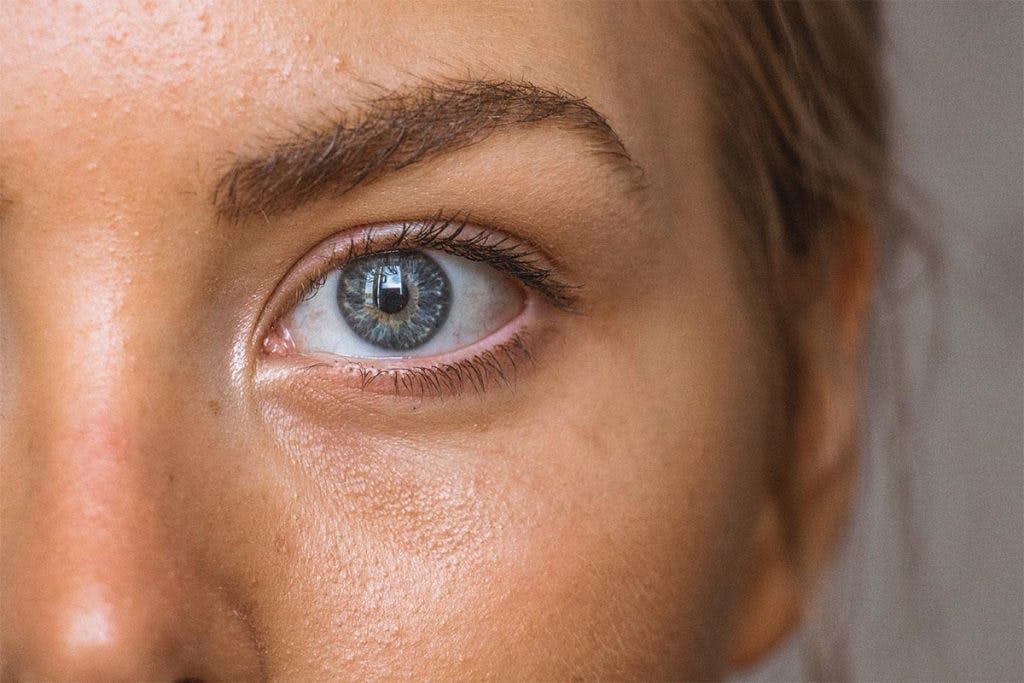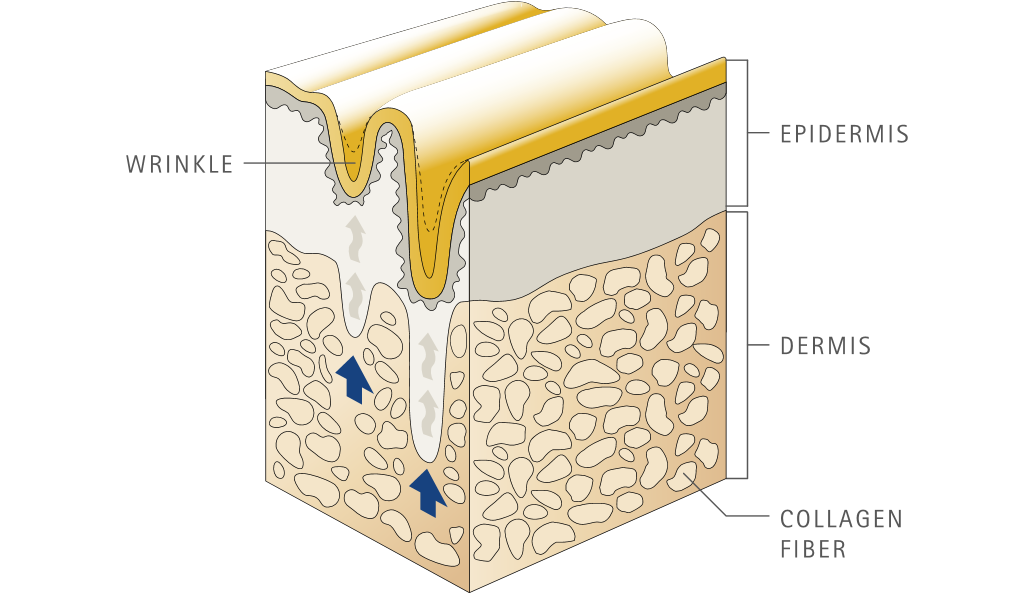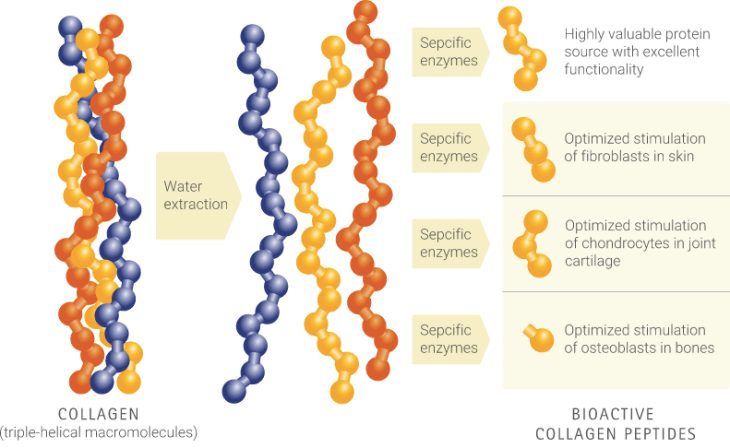What Is Collagen And Why Do We Need It?
Collagen is one of the biggest wellness trends at the moment, and it is proving to be the most effective thing you can do to induce younger-looking skin.

Bare Blends
2019-06-18

Collagen is one of the biggest wellness trends at the moment, and it is proving to be the most effective thing you can do to induce younger looking skin.
What is collagen?
Collagen is one of the most abundant proteins found in the body. It is the long-chain of the amino acids proline, hydroxyproline and glycine, which provides structure for connective tissues, muscles and bones. It also makes up about 75-80% of our skin, so it’s one of the most important proteins in our body.
In skin, collagen is found in the dermis. The dermis is the middle layer of skin, and it’s where you’ll find collagen, elastin, and hyaluronic acid, which are responsible for the structure and elasticity of skin.
Our body naturally produces collagen when we’re young, but production gradually slows during our mid-20s. Environmental factors such as exposure to sunlight can also deplete collagen stores. A few years later, we may start to notice less skin elasticity and wrinkles starting to appear.

In its unhydrolysed form, collagen can’t be absorbed by the body, as it is too big to cross the intestinal wall. Collagen peptides are made by breaking down the full-length collagen molecules into shorter chains of the same amino acids via a water extraction process called hydrolysis. Collagen peptides are more bioavailable and are more readily absorbed into the bloodstream during digestion.
When absorbed, collagen peptides travel through the body where they are built into full-length collagen chains and begin to repair our skin, bones, and joints, or provide energy.

Collagen powders are now readily available in health food stores as an easy addition to your daily diet. Collagen has also made its way into the skincare industry as an ingredient in many face creams, moisturisers and skin oils. We did some research into both types of collagen supplementation, with some very clear results.
Let us start by clearing one thing up - applying collagen topically will not work.
As lovely as collagen skincare products sound, applying collagen topically to the skin has never been shown to stimulate collagen growth or make a noticeable difference to collagen stores. This is because the collagen molecules are too large to penetrate the upper layer of the skin.
Studies on collagen
A double-blind, placebo-controlled study published in Skin Pharmacology and Physiology found that doses of collagen hydrolysate (2.5g per day and 5g per day) both showed statistically significant improved skin elasticity after 4 and 8 weeks of intake.
Another study published in Skin Pharmacology and Physiology found that oral intake of bioactive collagen peptides reduced wrinkles significantly over 8 weeks, and increased the dermal matrix synthesis. The dermal matrix is the framework in which deficient skin cells are replaced with new ones.
In a study published in the Journal of Medicinal Food it was concluded that supplementation of collagen peptides had a stimulatory effect on dermal cellular metabolism, improving the appearance of cellulite in healthy females (body mass index-dependent) by helping to restore dermal structure.
We also know that vitamin C helps to stabilise the collagen molecule structure. The presence of vitamin C in the fibroblasts supports the synthesis of collagen fibres, so including vitamin C with your collagen supplementation is important.
All in all, collagen is proving to be a very effective skin enhancer with very few (if any) downsides. Also beneficial for joint and bone health, gut health, digestion, and many other bodily functions, collagen can help to increase overall wellness. We’re looking forward to seeing many high-quality collagen supplements becoming available in the very near future.
- Collagen is one of the most abundant proteins found in the body, particularly in the dermis.
- Wrinkles are created from the depletion of collagen
- Collagen stores increasing deplete from the age of 25
- Collagen can only be increased via dietary sources
- Collagen can't be absorbed through the skin when applied topically
- Studies show significant improvement in skin elasticity and decreased wrinkles after collagen intake
